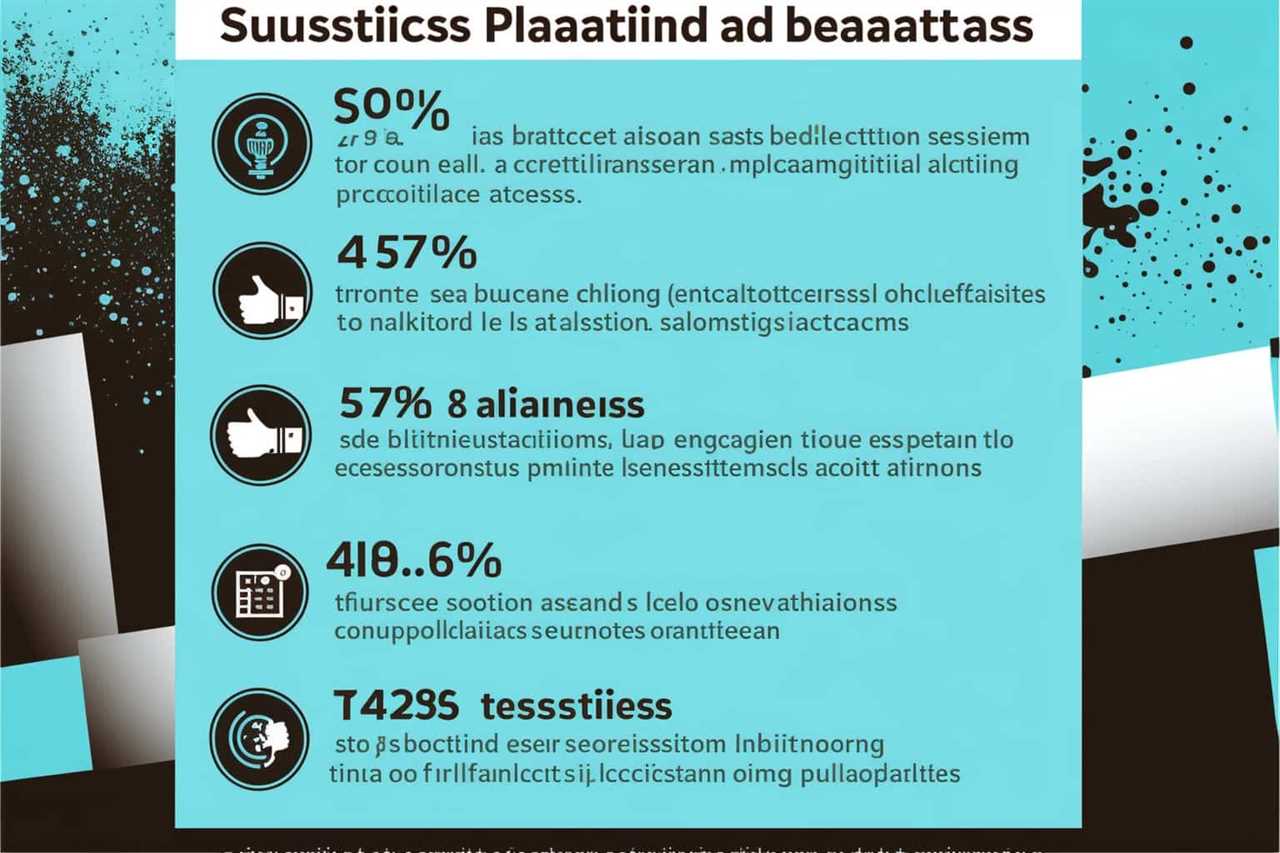AI in Business
Next Gen Generative AI: Business Implications 2024

In the business world of 2024, Artificial Intelligence, particularly generative AI, is significantly changing the landscape. This trend in technology is leading to the utilization of predictive analytics and transforming the way businesses function.
The next generation of artificial intelligence (AI) technology trends, specifically generative AI, is poised to revolutionize industries across the board. This presents immense potential for businesses to thrive, thanks to the predictive analytics and advanced technological capabilities it offers. With its artificial intelligence capabilities, generative AI is set to challenge traditional notions of creativity and innovation by autonomously generating new content, products, and experiences. This technological advancement, coupled with predictive analytics, has the potential to revolutionize productivity growth.

From the beginning stages of adoption and internal knowledge development to the impact on industry offerings and customer experience, we will uncover how artificial intelligence and predictive analytics in enterprise software are reshaping marketing strategies. Incorporating artificial intelligence (AI) and predictive analytics into enterprise operations is a crucial step for businesses. Today, we will explore the key considerations that businesses must navigate when adopting generative AI in various scenarios.
Join us as we explore the transformative power of predictive analytics in the enterprise world of 2024. Discover how this cutting-edge technology is revolutionizing company operations and reshaping the future of marketing.
Unveiling Generative AI’s Business Implications in 2024
Generative AI, the cutting-edge technology that enables machines to create new content, is set to revolutionize the business landscape in 2024 and beyond with its predictive analytics and automation potential. This technical automation will significantly boost productivity.
Explore Specific Ways Generative AI Will Impact Businesses
Generative AI holds immense potential for enterprise businesses across various sectors, especially in the realm of predictive analytics. It has the power to significantly boost productivity and revolutionize marketing strategies. With its productivity-enhancing ability to generate realistic images, videos, and even text, generative AI applications can streamline and enhance numerous processes by automating tasks.

The automation potential of generative AI use cases is immense. For instance, in marketing and advertising, generative AI can be employed to automate business functions and increase productivity by creating personalized content that resonates with individual customers using natural language. This could lead to more effective marketing targeting, increased customer engagement, and improved productivity through automation adoption.
Moreover, automation and generative AI capabilities have the potential to transform marketing productivity and product design and development. By leveraging the capabilities of this technology, businesses can increase their productivity by quickly generating multiple design options based on user preferences or market trends.

This automation in marketing allows for efficient and effective decision-making processes. This accelerated ideation process can significantly increase productivity and reduce time-to-market while ensuring products meet consumer demands. Through the adoption of marketing automation, this process becomes even more efficient.
Understand How Generative AI Will Shape the Future of Industries
The transformative power of generative AI extends beyond marketing and product design, increasing automation capabilities and boosting productivity through widespread adoption. Automation has the capabilities to reshape entire industries by increasing productivity through generative AI use cases. It automates complex tasks and enables innovation at an unprecedented pace.
In healthcare, for example, generative AI algorithms have shown promise in automating medical image analysis, increasing productivity and enabling new use cases in marketing. They can assist doctors in diagnosing diseases by automating the analysis of large volumes of medical images with speed and accuracy, enhancing productivity and leveraging their capabilities in language processing. This not only improves patient outcomes but also allows healthcare professionals to focus their expertise on critical decision-making, increasing productivity and utilizing marketing automation capabilities.

Similarly, in marketing, automation can increase productivity by streamlining work activities. Generative AI can help detect fraudulent transactions by analyzing patterns from vast amounts of data in real-time. By leveraging automation capabilities, businesses can enhance productivity in their marketing efforts. By identifying suspicious activities more efficiently than traditional methods, businesses can mitigate risks effectively while minimizing losses.
Unveiling the Transformative Power of Generative AI for Businesses
Generative AI’s transformative power lies in its automation capabilities, which augment human creativity and productivity in various work activities, particularly in the field of marketing. By automating repetitive tasks, it increases productivity and frees up human resources to focus on high-value work such as critical thinking and problem-solving in the field of marketing.
For instance, in content creation, generative AI can automate work activities by using capabilities to generate drafts of articles or reports based on specific keywords or topics. This automation allows writers to save time and energy while still maintaining control over work activities. With this automated process, writers can reduce their workload by a significant percent. It also opens up possibilities for collaboration between humans and machines in the automation of work activities, leading to more innovative and diverse content. This can result in a higher percent of automated tasks being completed efficiently.
Discover the Potential Applications of Generative AI in Various Sectors
Generative AI has the potential to automate a wide range of activities in different sectors, making work more efficient and reducing the need for human intervention by a significant percent. In manufacturing, automation can optimize work processes by generating efficient layouts for factories or predicting maintenance needs based on sensor data. These activities can increase productivity by a significant percent. This can lead to improved operational efficiency and cost savings in work activities, with a potential increase of 10 percent in AI use cases.

In the entertainment industry, generative AI algorithms can create realistic virtual characters or generate immersive virtual worlds for video games and virtual reality experiences. These activities add value to the work in the entertainment industry. This enhances user engagement and provides new avenues for creative storytelling activities, work, and value.
Moreover, in customer service, generative AI-powered chatbots can provide instant responses to customer queries, reducing wait times and enhancing overall customer satisfaction. These activities are valuable in the work of customer service. These chatbots can be trained to understand natural language processing techniques, enabling them to engage in meaningful conversations with customers. These activities at work add value.
The Business Implications of Next-Generation Generative AI
As we look ahead to 2024 and beyond, businesses need to embrace the potential of next-generation generative AI in order to enhance the value of their work activities. Its implications are vast and far-reaching, from improving marketing strategies through personalized content generation to revolutionizing healthcare diagnostics with advanced image analysis algorithms. These activities can greatly enhance the value of work in various fields.
By effectively leveraging generative AI technology, businesses can enhance the value of their work by accelerating innovation, optimizing operations, and delivering exceptional customer experiences. However, it is crucial for organizations to navigate ethical considerations surrounding data privacy and bias when implementing generative AI solutions in their work activities to ensure the value of their efforts.
The Economic Potential Unleashed by Generative AI
Generative AI has the potential to drive economic growth.
Generative AI, also known as next-generation artificial intelligence (AI), holds immense economic potential for businesses in 2024 and beyond. These activities can greatly enhance the value of work. With its advanced technological capabilities, generative AI can revolutionize industries and unlock new opportunities for economic growth by enhancing the value of work and optimizing activities.
By leveraging machine learning algorithms and neural networks, generative AI systems have the ability to create original content, such as images, videos, music, and even text. These activities demonstrate the value of generative AI in producing diverse and innovative outputs. This opens up a wide range of possibilities for businesses to enhance the value of their products and services through various activities.

Harnessing the economic benefits of next-generation generative AI.
By harnessing the power of generative AI, businesses can automate work processes and increase productivity by streamlining activities and adding value. With generative AI algorithms taking over repetitive tasks that were previously performed by humans, companies can allocate their workforce to more strategic activities and creative endeavors, increasing the value they provide. This shift in labor productivity can lead to significant cost savings and increased efficiency in work activities, adding value across various industries.
Exploring how generative AI can boost productivity and innovation.
Generative AI has the capability to significantly enhance productivity levels within organizations by improving work efficiency and adding value to activities. By automating work activities through intelligent algorithms, businesses can reduce human error and increase the value of overall output. For example, in manufacturing industries, generative AI can optimize work activities by analyzing data patterns and making real-time adjustments to add value to production processes. This not only improves the value of work by identifying areas for improvement or new product development, but also enables companies to innovate faster by engaging in activities that enhance operational efficiency.

The economic impact of integrating generative AI into business strategies.
The integration of generative AI into business strategies has the potential to generate substantial economic impact by enhancing work activities and adding value on a global scale. As companies work to adopt this technology in various sectors, such as healthcare and finance, they can expect to see improvements in customer experiences, product offerings, and revenue streams. These activities will bring added value to their business. Moreover, with its ability to generate unique content tailored to individual preferences, generative AI can help businesses capture new market segments and expand their customer base by providing valuable activities that work.
Unlocking new opportunities and revenue streams with generative AI.
Generative AI not only enhances the value of existing work models but also unlocks entirely new opportunities for revenue generation. By leveraging generative AI’s ability to create original content, companies can develop personalized products and services that cater to individual customer needs. This innovative approach allows companies to work efficiently and effectively in meeting the unique requirements of their customers. This customization can lead to higher customer satisfaction, increased sales, and ultimately, greater profitability. Generative AI can be utilized in the creation of virtual reality experiences, augmented reality applications, and other immersive technologies that have the potential to disrupt various industries.

Advancements in Generative AI Shaping Business Strategies
Reshaping Business Strategies with Advancements in Generative AI
Advancements in generative AI are revolutionizing the way businesses develop their strategies. This cutting-edge technology is enabling companies to leverage new capabilities and gain a competitive advantage in the market. By harnessing the power of generative AI, businesses can create innovative solutions, automate processes, and enhance efficiency across various functions.
Leveraging Cutting-Edge Generative AI Technologies for Competitive Advantage
Tech companies are at the forefront of adopting generative AI technologies to stay ahead of the curve. By embracing these advancements, they can unlock new opportunities and drive growth. For instance, semiconductor companies are leveraging generative AI to design more efficient chips and accelerate product development cycles. This enables them to deliver superior products while reducing costs and time-to-market.
Integrating Generative AI into Business Processes for Enhanced Efficiency
Generative AI has significant implications for business functions such as design, marketing, and customer service. By integrating this technology into their processes, businesses can streamline operations and improve outcomes. For example, using generative AI algorithms, designers can generate countless design variations quickly and efficiently. This not only saves time but also allows for more creative exploration and innovation.

The Role of Next-Generation Generative AI in Shaping Future Business Models
Next-generation generative AI is poised to play a pivotal role in shaping future business models. As this technology continues to evolve, it will enable businesses to reimagine their approaches and create entirely new value propositions. With its ability to generate realistic images, videos, text, and even music, next-generation generative AI opens up possibilities for immersive experiences across industries such as entertainment, gaming, and virtual reality.
Adapting Business Strategies to Leverage the Power of Generative AI
To harness the full potential of generative AI technologies, businesses need to adapt their strategies accordingly. This involves understanding the adoption scenarios and trends related to generative AI and identifying the areas where it can create the most impact. By aligning their business strategies with the capabilities of generative AI, companies can unlock new avenues for growth and innovation.
Transforming Healthcare with Generative AI Innovations
Revolutionizing healthcare through innovative applications of generative AI
Generative AI has the potential to revolutionize the healthcare industry, opening up new possibilities for patient care and treatment outcomes. By harnessing the power of machine learning algorithms, generative AI can generate new data samples that mimic real-world scenarios. This technology allows healthcare professionals to explore various hypothetical situations and develop innovative solutions.

For example, generative AI can be used to simulate different treatment plans for patients with complex medical conditions. By inputting patient data into the system, healthcare providers can generate multiple scenarios and evaluate the effectiveness of different interventions. This not only saves time but also enables doctors to make more informed decisions based on evidence-backed predictions.
Enhancing patient care and treatment outcomes with next-generation generative AI
Next-generation generative AI takes this innovation even further by incorporating advanced techniques such as deep learning and neural networks. These advancements enable machines to learn from vast amounts of data and generate highly accurate predictions.
With enhanced predictive capabilities, generative AI can improve patient care and treatment outcomes in several ways. For instance, it can assist in early diagnosis by analyzing a patient’s medical history, symptoms, and genetic information. By identifying patterns that may be missed by human clinicians, generative AI can help detect diseases at their earliest stages when they are most treatable.
Moreover, generative AI can facilitate personalized medicine by tailoring treatments to individual patients based on their unique characteristics. By considering factors such as genetics, lifestyle choices, and environmental influences, this technology enables healthcare providers to deliver targeted interventions that maximize efficacy while minimizing side effects.
Improving diagnosis accuracy and personalized medicine using generative AI
One of the key advantages of generative AI is its ability to process vast amounts of medical data quickly and accurately. This capability translates into improved diagnosis accuracy as machines analyze numerous variables simultaneously to identify patterns or anomalies that might be overlooked by human clinicians.
For example, generative AI can analyze medical images such as X-rays, MRIs, or CT scans to identify subtle signs of disease. By comparing the patient’s images with a vast database of similar cases, generative AI can detect early-stage tumors or other abnormalities that might have been missed during manual examination. This not only improves diagnostic accuracy but also enables earlier intervention and better treatment outcomes.
Generative AI can contribute to the development of personalized medicine by considering multiple factors simultaneously. By analyzing genetic data, lifestyle information, and treatment history, generative AI algorithms can generate tailored treatment plans that optimize therapeutic response for individual patients. This approach has the potential to revolutionize healthcare by shifting from a one-size-fits-all model to a more personalized and precise approach.
Exploring how healthcare providers can leverage the power of generative AI
Healthcare providers have an opportunity to leverage the power of generative AI to enhance patient care and improve operational efficiency. By integrating generative AI into their workflows, hospitals and clinics can streamline processes such as diagnosis, treatment planning, and patient monitoring.
For instance, generative AI algorithms can assist radiologists in analyzing medical images more efficiently. By highlighting areas of concern or providing automated measurements, these algorithms save time and reduce the chances of human error. Similarly, in drug discovery research, generative AI can accelerate the identification and optimization of potential drug candidates by simulating molecular structures and predicting their properties.

Furthermore, healthcare providers can use generative AI-powered chatbots or virtual assistants to improve patient engagement and support remote monitoring. These tools provide patients with instant access to reliable medical information while enabling healthcare professionals to monitor patients’ conditions remotely.
The transformative potential of generative AI in the healthcare industry
Generative AI holds immense transformative potential for the healthcare industry. Its ability to process large amounts of data quickly and accurately opens up new avenues for improving patient care outcomes, personalized medicine, and operational efficiency.
As generative AI continues to evolve and integrate with other technologies such as robotics and wearable devices, the possibilities for healthcare innovation are boundless.
Content Creation Revolution through Generative AI
Revolutionizing content creation processes
Generative AI, powered by deep learning algorithms, is revolutionizing the way content is created. It offers a new paradigm for enhancing creativity and efficiency in content production. With next-generation generative AI, businesses can automate content generation and streamline their creative workflows.
Enhancing creativity and efficiency
Next-generation generative AI enables knowledge workers to tap into its vast potential for creating compelling content. By leveraging advanced algorithms, they can generate high-quality images, videos, and text that meet specific requirements. This not only enhances creativity but also improves efficiency by reducing the time and effort required to produce engaging content.
Automating content generation
One of the most significant implications of generative AI is its ability to automate content generation. Image generators powered by deep learning models can create realistic images from scratch or based on specific inputs. Similarly, video content can be generated using algorithms that understand patterns and styles from existing footage. These advancements in generative AI allow businesses to automate repetitive tasks and focus on more strategic aspects of content creation.
Impact on digital media, advertising, and entertainment industries
The impact of generative AI on digital media, advertising, and entertainment industries cannot be overstated. In digital media, generative AI algorithms can analyze large volumes of data to identify trends and patterns that inform content strategies. This helps businesses tailor their messaging to target audiences effectively.

In advertising, generative AI enables the creation of personalized ads at scale. By analyzing user data and preferences, advertisers can generate customized visuals and messages that resonate with individual consumers. This level of personalization has the potential to significantly improve ad performance.
In the entertainment industry, generative AI opens up new possibilities for creating immersive experiences. For example, virtual reality (VR) experiences can be enhanced with realistic visuals generated by deep learning algorithms. Generative AI can assist in scriptwriting by suggesting plotlines or character development based on existing data.
Exploring the future of content creation
As generative AI continues to advance, the future of content creation looks promising. With the democratization of data and the availability of powerful AI tools, businesses of all sizes can harness the potential of generative AI for their content needs. This will lead to a more diverse range of creative outputs and innovative approaches to storytelling.
Furthermore, as generative AI becomes more accessible, knowledge workers will be able to leverage its capabilities without extensive technical expertise. This will empower individuals in various industries to create impactful content that resonates with their audiences.
Boosting Marketing and Sales with AI-Driven Personalization
Leveraging AI-driven personalization to boost marketing and sales efforts
In today’s competitive business landscape, personalized marketing has become a crucial strategy for companies looking to engage customers and drive sales. With the advent of artificial intelligence (AI), particularly generative AI, businesses now have powerful tools at their disposal to enhance their marketing and sales efforts. By leveraging AI-driven personalization, marketers can create tailored experiences that resonate with individual customers, leading to increased engagement, conversions, and customer loyalty.
Enhancing customer experiences through personalized marketing campaigns powered by generative AI
One of the key benefits of using generative AI in marketing is its ability to create highly personalized campaigns. Traditional marketing approaches often rely on generic messages that target broad audiences. However, with the power of generative AI, marketers can develop customized content that speaks directly to each customer’s unique preferences and needs.
By analyzing vast amounts of data about individual customers’ behaviors, interests, and demographics, generative AI algorithms can generate personalized recommendations, offers, and advertisements. This level of personalization not only enhances the overall customer experience but also increases the likelihood of conversion by delivering relevant content that resonates with each individual.
Harnessing the power of next-generation generative AI for targeted advertising
Generative AI has revolutionized targeted advertising by enabling marketers to reach their desired audience more effectively than ever before. By utilizing predictive analytics and machine learning algorithms powered by generative models, businesses can identify patterns in consumer behavior and preferences.
This wealth of information allows marketers to segment their target audience more precisely based on factors such as demographics, interests, purchasing history, and online behavior. Armed with this knowledge, they can then develop hyper-targeted ad campaigns that are more likely to capture consumers’ attention and drive conversions.
Furthermore, next-generation generative AI techniques enable businesses to go beyond traditional demographic-based targeting. Instead of focusing solely on age, gender, or location, marketers can leverage AI to identify more nuanced characteristics and preferences. This opens up new possibilities for reaching niche audiences and delivering highly tailored messages that resonate with specific consumer segments.
Improving customer segmentation and engagement with advanced generative AI techniques
Effective customer segmentation is crucial for any marketing strategy. By dividing customers into distinct groups based on shared characteristics and behaviors, businesses can tailor their messaging and offerings to each segment’s unique needs.
Generative AI offers advanced techniques for customer segmentation that go beyond traditional methods. Through the analysis of large datasets, generative models can uncover hidden patterns in consumer behavior and identify micro-segments within broader target audiences. This level of granularity allows marketers to create personalized campaigns that speak directly to each segment’s preferences, resulting in higher engagement rates and increased conversions.
Generative AI can enhance customer engagement by creating interactive experiences that captivate audiences. For example, chatbots powered by generative models can provide personalized recommendations or answer customer queries in real-time. These interactive experiences not only improve customer satisfaction but also foster a sense of brand loyalty as customers feel seen and understood by the business.
The role of generative AI in driving marketing and sales success in 2024
As we look ahead to 2024, it is clear that generative AI will play a pivotal role in shaping the future of marketing and sales. With its ability to personalize marketing campaigns, enhance targeted advertising efforts, improve customer segmentation, and drive engagement, generative AI empowers businesses to connect with customers on a deeper level.
By harnessing the power of next-generation generative AI techniques alongside predictive analytics and automation tools, marketers can unlock valuable insights about their target audience. Armed with this knowledge, they can create highly tailored experiences that resonate with individual customers’ preferences and needs.
Generative AI as a Catalyst in Software Development
Transforming Software Development Processes
Generative AI is revolutionizing software development processes by automating various tasks and optimizing code generation. With the help of next-generation generative AI, developers can streamline their workflow and significantly reduce the time and effort required to write complex computer code. Instead of manually coding every aspect of a software program, generative AI tools can analyze existing codebases, understand patterns, and generate new code snippets based on learned patterns.
Automating Code Generation and Optimization
One of the key applications of generative AI in software development is automating code generation. By leveraging generative AI models, developers can create efficient algorithms that automatically produce high-quality code tailored to specific requirements. These algorithms can optimize performance, minimize errors, and ensure adherence to best practices. This automation not only saves time for developers but also enhances the overall quality and efficiency of the software being developed.
Enhancing Software Quality and Efficiency
Generative AI algorithms have the potential to significantly improve software quality and efficiency. By analyzing vast amounts of data from existing codebases, these algorithms can identify common patterns, detect bugs or vulnerabilities, and suggest optimizations or improvements. This helps developers create more robust and reliable software while reducing the likelihood of introducing errors or security flaws. Generative AI tools can assist in refactoring existing code to make it more maintainable, scalable, or modular.
Accelerating Software Development Cycles
The use of generative AI in software development holds great promise for accelerating development cycles. By automating repetitive tasks such as generating boilerplate code or writing test cases, developers can focus more on higher-level design decisions and creative problem-solving. This increased productivity enables faster turnaround times for delivering new features or updates to users. Moreover, generative AI algorithms can aid in rapid prototyping by generating functional prototypes based on user requirements or specifications.
The Future Impact on Software Engineering
Generative AI is poised to have a profound impact on the future of software engineering. As technology continues to advance, generative AI models will become more sophisticated and capable of handling complex software development tasks. This will enable developers to create innovative solutions faster, with higher quality and efficiency. The use of generative AI in software engineering may lead to new paradigms and approaches in designing and building enterprise software.
Product R&D Enhancement via Generative AI
Revolutionizing product research and development with generative AI
Generative AI is poised to revolutionize the field of product research and development (R&D). By harnessing the power of machine learning algorithms, businesses can leverage generative AI to accelerate innovation and ideation processes in unprecedented ways. With the ability to analyze vast amounts of data, generative AI can generate novel ideas, designs, and concepts that may have otherwise been overlooked by human researchers.
Accelerating innovation and ideation processes using next-generation generative AI
The advent of next-generation generative AI brings forth exciting possibilities for accelerating the pace of innovation and ideation. Through advanced algorithms, generative AI can rapidly generate a multitude of design options based on specific criteria or constraints provided by product developers. This enables businesses to explore a wide range of possibilities quickly, allowing for more efficient decision-making processes.
Optimizing product design and prototyping through advanced generative AI algorithms
Generative AI algorithms offer immense potential for optimizing product design and prototyping. By analyzing existing data on consumer preferences, market trends, and technical specifications, these algorithms can generate design recommendations that align with customer expectations while also considering manufacturing feasibility. This enables businesses to streamline their design iterations, reduce costs associated with physical prototyping, and ultimately bring products to market faster.
Leveraging generative AI to enhance product customization and personalization
In today’s highly competitive marketplace, customization and personalization are key factors in capturing consumer interest. Generative AI can play a crucial role in enhancing these aspects of product development. By analyzing individual customer preferences along with broader market trends, businesses can utilize generative AI algorithms to create personalized variations or configurations of their products. This level of customization not only enhances customer satisfaction but also provides businesses with valuable insights into emerging trends.
The transformative potential of generative AI in product R&D
The transformative potential of generative AI in product R&D cannot be overstated. By automating and augmenting various aspects of the R&D process, businesses can achieve significant improvements in efficiency, productivity, and innovation. Generative AI algorithms have the ability to analyze vast amounts of data, identify patterns, generate novel ideas and designs, and optimize product development processes. This not only leads to faster time-to-market but also enables businesses to stay ahead of their competitors by continuously delivering innovative products that meet evolving customer needs.
Retail and CPG Industry Transformation with Generative AI
Reshaping the Retail and CPG Industries
Generative AI is revolutionizing the retail and consumer packaged goods (CPG) industries, transforming the way businesses operate and interact with customers. By leveraging advanced algorithms and machine learning techniques, generative AI is enabling retailers and CPG companies to enhance their operations, improve customer experiences, optimize inventory management, and streamline supply chain processes.
Personalized Recommendations for Enhanced Customer Experiences
One of the key ways generative AI is reshaping the retail and CPG industries is through personalized recommendations. By analyzing vast amounts of customer data, including purchase history, browsing behavior, and preferences, next-generation generative AI algorithms can generate highly tailored product recommendations. This level of personalization not only improves customer satisfaction but also increases sales conversion rates as customers are more likely to engage with products that align with their individual tastes and needs.
Imagine walking into a retail store or browsing an online marketplace where every product suggestion feels like it was handpicked just for you. Generative AI makes this possible by understanding your unique preferences and delivering personalized recommendations that cater to your specific interests. Whether you’re searching for a new outfit or looking for the perfect gift, generative AI empowers retailers to curate a personalized shopping experience that keeps customers coming back for more.
Optimizing Inventory Management and Demand Forecasting
Generative AI algorithms also play a crucial role in optimizing inventory management and demand forecasting for retailers and CPG companies. By analyzing historical sales data, market trends, external factors such as weather patterns or social media trends, generative AI can accurately predict future demand patterns. This allows businesses to optimize their inventory levels by ensuring they have the right products in stock at the right time while minimizing excess inventory or stockouts.
With generative AI-powered demand forecasting models in place, retailers can avoid overstocking products that may go unsold or understocking popular items that could lead to missed sales opportunities. This not only improves operational efficiency but also helps businesses save costs by reducing inventory carrying expenses and minimizing the risk of obsolete inventory.
Supply Chain Optimization with Generative AI
Generative AI is also transforming supply chain management for retailers and CPG companies. By analyzing data from various sources, including suppliers, logistics providers, and market demand, generative AI algorithms can optimize supply chain processes to ensure efficient product flow from production to distribution.
For instance, generative AI can help identify bottlenecks in the supply chain, optimize transportation routes to minimize delivery times and costs, and even predict potential disruptions such as delays or shortages. By streamlining these processes, businesses can improve overall supply chain efficiency, reduce costs, and enhance customer satisfaction through timely deliveries.
The Future of Retail and CPG Businesses
The impact of generative AI on the future of retail and CPG businesses cannot be overstated. As technology continues to advance and generative AI algorithms become more sophisticated, we can expect further transformations in how these industries operate.
In the future, we may see virtual shopping assistants powered by generative AI that provide personalized recommendations through voice commands or augmented reality experiences that allow customers to virtually try on products before making a purchase. Generative AI could enable real-time dynamic pricing strategies based on factors such as customer demand or competitor pricing.
By harnessing the power of next-generation generative AI technologies, retailers and CPG companies have an opportunity to stay ahead of the competition while delivering exceptional customer experiences. Embracing this transformative technology will undoubtedly shape the future landscape of these industries.
Banking Sector’s Evolution Through Generative AI Integration
Transforming the banking sector through the integration of generative AI.
Generative AI is set to revolutionize the banking industry, transforming traditional banking operations into a more efficient and customer-centric experience. By integrating generative AI technologies into their systems, banks can streamline processes, improve decision-making, and enhance overall customer satisfaction.
Enhancing fraud detection and risk assessment using next-generation generative AI.
One of the key areas where generative AI can have a significant impact is in fraud detection and risk assessment. Banks can use advanced algorithms powered by generative AI to analyze large volumes of data in real-time, identifying patterns and anomalies that may indicate fraudulent activities. This proactive approach enables banks to detect potential threats early on, minimizing financial losses for both customers and the institution itself.
Personalizing financial services and customer interactions with generative AI algorithms.
Generative AI algorithms have the potential to personalize financial services like never before. By analyzing vast amounts of customer data, including transaction history, spending patterns, and preferences, banks can offer tailored recommendations and customized solutions to individual customers. This level of personalization not only enhances the customer experience but also allows banks to anticipate their customers’ needs and provide proactive support when required.
Exploring how banks can leverage generative AI for predictive analytics and decision-making.
Predictive analytics plays a crucial role in enabling banks to make informed decisions regarding investments, loan approvals, and risk management. Generative AI algorithms can analyze historical data trends as well as current market conditions to predict future outcomes accurately. By leveraging these insights provided by generative AI models, banks can make strategic decisions that optimize profitability while minimizing risks.
Furthermore, generative AI can assist in automating routine tasks such as credit scoring or underwriting processes. This automation not only reduces manual errors but also accelerates decision-making processes, allowing banks to provide faster responses to customer inquiries or loan applications.
The potential of generative AI to revolutionize banking operations in 2024.
In the near future, generative AI is expected to reshape various aspects of banking operations. For instance, chatbots powered by generative AI can provide instant and accurate responses to customer queries, improving customer service efficiency. These chatbots can handle a wide range of inquiries, from balance inquiries to account transfers, freeing up human agents to focus on more complex tasks that require human intervention.
Moreover, generative AI can assist banks in detecting emerging market trends and identifying new business opportunities. By analyzing vast amounts of data from multiple sources, including social media platforms and financial news outlets, generative AI algorithms can identify patterns and correlations that human analysts may overlook. This valuable insight enables banks to stay ahead of the competition and make strategic decisions that drive growth.
The Ethical and Responsible Use of Generative AI
Ensuring ethical considerations in the adoption of generative AI technologies.
As businesses embrace the next generation of generative AI, it becomes crucial to prioritize ethical considerations. This means taking into account the potential impact on individuals, society, and even the environment. Companies must ensure that their use of generative AI aligns with ethical standards and respects privacy rights.
Addressing concerns regarding privacy, bias, and accountability in generative AI applications.
One of the key concerns surrounding generative AI is its potential impact on privacy. As these technologies become more advanced, there is a need to address how personal data is collected, used, and protected. Businesses must implement robust privacy measures to safeguard sensitive information and gain the trust of their customers.
Another important consideration is bias within generative AI applications. These systems learn from vast amounts of data, which can inadvertently perpetuate biases present in that data. It is crucial for businesses to actively identify and mitigate any biases in order to ensure fair and equitable outcomes.
Furthermore, accountability plays a significant role in the responsible use of generative AI. Companies should be transparent about how they utilize these technologies and take responsibility for any unintended consequences or errors that may arise. This includes establishing mechanisms for redress if individuals are adversely affected by generative AI systems.
Promoting responsible use of next-generation generative AI in business practices.
To promote responsible use of next-generation generative AI in business practices, organizations should prioritize transparency and informed decision-making. They should clearly communicate how these technologies are being utilized within their operations to stakeholders such as employees, customers, and regulators.
Companies should invest in ongoing education and training programs to ensure that employees understand the capabilities and limitations of generative AI systems. This will enable them to make informed decisions when using these technologies while also fostering a culture that values ethical considerations.
Exploring regulatory frameworks for governing the ethical use of generative AI.
As generative AI becomes more prevalent, it is essential to establish regulatory frameworks that govern its ethical use. These frameworks should address concerns such as privacy, bias, and accountability. Regulators can play a crucial role in ensuring that businesses adopt responsible practices by setting guidelines and enforcing compliance.
Collaboration between industry stakeholders, policymakers, and experts in the field will be vital in developing these regulatory frameworks. By working together, they can create a balanced approach that enables innovation while also protecting individuals’ rights and interests.
Balancing innovation with ethical considerations in the deployment of generative AI.
While innovation drives the adoption of next-generation generative AI, it is important to strike a balance with ethical considerations. Businesses must ensure that their pursuit of innovation does not compromise privacy, fairness, or accountability.
This requires ongoing evaluation and monitoring of generative AI systems to identify any potential risks or unintended consequences. Companies should have mechanisms in place to assess the impact of these technologies on individuals and society as a whole. Regular audits can help identify areas for improvement and ensure that ethical standards are being upheld.
Conclusion
Congratulations! You’ve just taken a deep dive into the exciting world of generative AI and its implications for business in 2024. We’ve explored how this cutting-edge technology is revolutionizing various industries, from healthcare and content creation to marketing and software development. The economic potential unleashed by generative AI is immense, offering businesses new avenues for growth and innovation.
But it’s not just about the bottom line. As we embrace the power of generative AI, we must also consider the ethical and responsible use of this technology. It’s crucial to strike a balance between progress and ensuring that generative AI is harnessed for the greater good.
So, what’s next? Stay curious, stay informed, and keep an eye on the rapid advancements in generative AI. As a business leader or entrepreneur, explore how you can integrate this transformative technology into your own operations. Embrace the possibilities, adapt to change, and be at the forefront of innovation.
Now go out there and shape the future with generative AI!
Frequently Asked Questions
What is Generative AI and how does it impact businesses in 2024?
Generative AI refers to a technology that can create original content, such as images, videos, or text. In 2024, its impact on businesses will be significant as it can revolutionize content creation, boost marketing personalization, enhance product R&D, transform industries like healthcare and retail, and even reshape software development.
How does Generative AI benefit the healthcare industry?
Generative AI brings innovation to healthcare by enabling the development of personalized treatments and drug discovery. It assists in analyzing medical data for better diagnoses and treatment plans. It enhances medical imaging interpretation and aids in simulating patient outcomes for improved decision-making.
Can Generative AI help improve marketing and sales?
Absolutely! Generative AI empowers marketers with personalized campaigns tailored to individual preferences. By analyzing vast amounts of customer data, it enables targeted advertisements that resonate with consumers. This leads to higher engagement rates and increased conversions.
Is Generative AI only useful for content creation?
No, generative AI has applications beyond content creation. It acts as a catalyst in software development by automating code generation and assisting developers in creating complex algorithms more efficiently. It also enhances product research and development by generating innovative designs or prototypes.
What are the ethical considerations surrounding Generative AI?
As with any powerful technology, there are ethical considerations when using generative AI. Ensuring responsible use is crucial to avoid misuse or bias within generated content. Transparency regarding the use of generative AI is necessary to maintain trust among users while respecting privacy rights.
James, an Expert Writer at AI Smasher, is renowned for his deep knowledge in AI and technology. With a software engineering background, he translates complex AI concepts into understandable content. Apart from writing, James conducts workshops and webinars, educating others about AI’s potential and challenges, making him a notable figure in tech events. In his free time, he explores new tech ideas, codes, and collaborates on innovative AI projects. James welcomes inquiries.
AI in Business
Unveiling the Power of Sentiment Analysis in AI for Business

We made an exciting discovery: Sentiment analysis is revolutionizing AI for businesses.
Did you know that 85% of customers trust online reviews as much as personal recommendations?
In this article, we’ll delve into the power of sentiment analysis in the world of business AI. By harnessing the capabilities of natural language processing, sentiment analysis enables companies to analyze and interpret customer opinions and emotions.
Join us as we explore the benefits, techniques, applications, challenges, and future directions of sentiment analysis for business AI.![]()
Key Takeaways
- Sentiment analysis helps businesses understand customer attitudes and opinions towards their products or services.
- Natural Language Processing (NLP) algorithms and machine learning models are used in sentiment analysis to analyze and interpret large amounts of text data.
- NLP enables businesses to efficiently process and understand social media sentiment, providing real-time monitoring and reliable insights.
- Sentiment analysis has real-world applications in monitoring public sentiment, improving customer satisfaction, and aiding in reputation management.
Overview of Sentiment Analysis in Business AI
In our article, we’ll provide a comprehensive overview of the role and significance of sentiment analysis in AI for businesses.
Sentiment analysis is a powerful technique that helps organizations extract valuable insights from customer feedback and online conversations. By analyzing sentiment, companies can understand customer opinions, emotions, and attitudes towards their products or services.
There are various sentiment analysis techniques available, including rule-based, machine learning, and hybrid approaches. These techniques involve the use of sentiment analysis tools, such as Natural Language Processing (NLP) algorithms, lexicons, and machine learning models. These tools help automate the process of sentiment analysis and can handle large volumes of data efficiently.
With sentiment analysis, businesses can make data-driven decisions, improve customer satisfaction, identify emerging trends, and enhance their overall brand reputation.
Benefits of Natural Language Processing in Sentiment Analysis
One significant benefit of Natural Language Processing (NLP) in sentiment analysis is its ability to accurately analyze and interpret large amounts of text data. NLP techniques enable businesses to efficiently process and understand social media sentiment, allowing them to gain valuable insights into public opinion and customer satisfaction.
Some benefits of NLP in sentiment analysis include:
-
Improved accuracy: NLP algorithms can identify and analyze sentiment with a high degree of precision and accuracy, providing businesses with reliable insights.
-
Efficient data processing: NLP enables businesses to process and analyze large volumes of text data in a relatively short amount of time, saving valuable resources.

-
Real-time monitoring: NLP techniques allow businesses to track social media sentiment in real-time, enabling them to respond promptly to customer feedback and concerns.
-
Enhanced decision-making: By leveraging NLP in sentiment analysis, businesses can make data-driven decisions based on a comprehensive understanding of customer sentiment and preferences.
Techniques for Training Sentiment Analysis Models
To effectively train sentiment analysis models, we employ various techniques that allow us to extract meaningful insights from large amounts of textual data.
One popular technique is transfer learning, which involves leveraging pre-trained models on vast datasets and fine-tuning them for specific sentiment analysis tasks. By using transfer learning, we can benefit from the knowledge and patterns learned by these models on general language understanding, saving time and resources.

Another technique is feature extraction, where we extract relevant features from the text that can help us classify sentiment. These features can include word frequencies, n-grams, or even more complex linguistic features like sentiment lexicons. By selecting and extracting the right features, we can enhance the accuracy and performance of our sentiment analysis models, making them more effective in understanding and classifying sentiment in textual data.
Real-world Applications of Sentiment Analysis in Business AI
Using transfer learning and feature extraction techniques, we can now explore real-world applications of sentiment analysis in business AI.
Sentiment analysis in social media allows companies to monitor and analyze public sentiment towards their brand, products, and services. By analyzing social media posts, comments, and reviews, businesses can gain valuable insights into customer opinions and identify trends and patterns.
Sentiment analysis in customer reviews helps companies understand customer satisfaction levels and identify areas for improvement. It enables companies to proactively address any negative feedback and improve customer experience.
Additionally, sentiment analysis can be used for reputation management, allowing businesses to track and manage their online reputation by identifying and addressing any negative sentiment.
Challenges and Future Directions in Sentiment Analysis for Business AI
As we delve into the challenges and future directions of sentiment analysis for business AI, we continue to explore its applications and the potential it holds for enhancing customer satisfaction and strategic decision-making.
Looking ahead, future advancements in sentiment analysis will likely focus on improving accuracy and reliability. This includes developing more sophisticated algorithms that can better understand complex emotions and subtle nuances in text. Additionally, advancements in natural language processing and machine learning techniques will enable sentiment analysis systems to become more context-aware, taking into account factors such as sarcasm and irony.
However, with these advancements also come ethical implications. As sentiment analysis becomes more powerful and pervasive, there’s a need to address issues of privacy, bias, and the responsible use of customer data. Striking the right balance between innovation and ethical considerations will be crucial for the future of sentiment analysis in business AI.
Frequently Asked Questions
Can Sentiment Analysis Be Used in Industries Other Than Business Ai?
Sentiment analysis can indeed be applied in industries beyond business AI. For instance, sentiment analysis finds use in healthcare by analyzing patient feedback. Furthermore, it is employed in political campaigns to gauge public opinion and tailor messaging accordingly.
What Are the Limitations of Using Natural Language Processing in Sentiment Analysis?
Sentiment analysis accuracy and challenges in natural language processing include bias, sarcasm, and context understanding. These limitations hinder the ability to accurately interpret emotions, making sentiment analysis a complex task in AI for business.
How Long Does It Typically Take to Train a Sentiment Analysis Model?
Training time for sentiment analysis models varies depending on the dataset size and complexity. Generally, it takes a few hours to a few days. However, longer training times can lead to higher model accuracy, ensuring reliable sentiment analysis results.
Are There Any Ethical Concerns Surrounding the Use of Sentiment Analysis in Business Ai?
There are ethical implications and privacy concerns surrounding the use of sentiment analysis in business AI. We must consider the potential misuse of personal data and the potential for biased or discriminatory outcomes.
What Are the Potential Future Advancements and Developments in Sentiment Analysis for Business Ai?
In the future, we can expect exciting advancements and developments in sentiment analysis for business AI. AI technologies will continue to evolve, enabling more accurate and nuanced analysis of sentiment, leading to better decision-making and customer insights.
Conclusion
In conclusion, sentiment analysis holds immense potential in shaping the future of AI for business. By harnessing the power of natural language processing techniques, organizations can gain valuable insights into customer sentiments, enabling them to make data-driven decisions.
However, like any evolving technology, sentiment analysis faces challenges and requires continual advancements. As the field progresses, it’s crucial for researchers and practitioners to address these challenges and explore new avenues to further enhance the accuracy and applicability of sentiment analysis in the realm of business AI.
Hanna is the Editor in Chief at AI Smasher and is deeply passionate about AI and technology journalism. With a computer science background and a talent for storytelling, she effectively communicates complex AI topics to a broad audience. Committed to high editorial standards, Hanna also mentors young tech journalists. Outside her role, she stays updated in the AI field by attending conferences and engaging in think tanks. Hanna is open to connections.
AI in Business
Why Natural Language Processing Is a Game-Changer for Customer Experience

Imagine a situation where customer interactions are improved, understanding of customer needs is increased, and customer support becomes more effective. Enter the world of Natural Language Processing (NLP).
With NLP technology, we can transform customer experiences into personalized journeys. Through the power of language processing, we can unlock a new level of customer satisfaction.
In this article, we will explore why NLP is revolutionizing the way businesses connect with their customers. Get ready to embark on a journey towards mastery in customer experience.
Key Takeaways
- AI chatbots revolutionize customer service by providing automated support.
- Natural language processing enables accurate interpretation of customer intents.
- NLP technology helps businesses enhance their services according to customer needs.
- NLP technology contributes to a positive customer experience.
Enhanced Customer Interactions Through AI
We have witnessed a significant improvement in customer interactions through the implementation of AI technologies.
AI powered chatbots have revolutionized the way businesses handle customer queries and concerns. These chatbots provide automated customer service, allowing businesses to respond to customer inquiries promptly and efficiently.
By leveraging advanced natural language processing techniques, AI chatbots can understand and interpret customer intents accurately, providing personalized and relevant responses. Additionally, sentiment analysis is used for feedback analysis, enabling businesses to gauge customer satisfaction levels and identify areas for improvement.
This valuable insight helps companies tailor their products and services to meet customer needs effectively. Furthermore, AI technologies enable proactive customer engagement, allowing businesses to anticipate customer needs and provide proactive support.
Improved Understanding of Customer Needs
By implementing natural language processing, businesses can gain a deeper understanding of their customers’ needs. This enhanced customer insights allows companies to optimize their product recommendations and deliver a more personalized experience. Natural language processing enables businesses to analyze large volumes of customer data, such as reviews, feedback, and social media interactions, to identify patterns and trends. This deeper understanding of customer needs enables businesses to tailor their products and services to meet specific demands. Through the use of advanced algorithms, businesses can generate optimized product recommendations, increasing the likelihood of customer satisfaction and loyalty. The following table illustrates how natural language processing can enhance customer insights and optimize product recommendations:
| Enhanced Customer Insights | Optimized Product Recommendations | Improved Customer Experience |
|---|---|---|
| Analyzing customer data | Generating personalized suggestions | Meeting specific demands |
| Identifying patterns and trends | Increasing customer satisfaction | Enhancing customer loyalty |
| Tailoring products and services | Improving customer retention | Delivering personalized experiences |
Streamlined Customer Support With NLP
Implementing natural language processing (NLP) in customer support offers several benefits. One key advantage is the use of an automated ticketing system, which categorizes and routes customer inquiries to the appropriate department or agent. This reduces manual effort and response times, improving efficiency and ensuring faster and more accurate support for customers.
Another advantage of NLP is the integration of chatbots. These virtual assistants can understand and respond to customer queries in a conversational manner. Equipped with NLP capabilities, chatbots provide instant assistance, answer frequently asked questions, and handle basic tasks. This frees up human agents to focus on more complex customer issues.
Personalized Customer Experiences With Language Processing
One of the key benefits of language processing is its ability to provide personalized customer experiences. By analyzing customer data and understanding their preferences, businesses can tailor their marketing strategies to individual customers.
Language processing allows companies to gather valuable insights from social media platforms, enabling them to understand customer sentiment and engage with their audience effectively. With the help of language processing in social media, businesses can identify customer needs, interests, and buying behaviors, allowing them to deliver targeted and personalized marketing messages.
This not only enhances the customer experience but also increases the likelihood of conversion and customer loyalty. By utilizing language processing technologies, businesses can create personalized marketing strategies that resonate with their customers, ultimately leading to increased customer satisfaction with NLP technology.
Increased Customer Satisfaction With NLP Technology
With the implementation of natural language processing technology, we can significantly enhance customer satisfaction.
NLP applications in sales and marketing have revolutionized the way businesses interact with their customers. By analyzing and understanding customer feedback, NLP technology helps companies identify pain points and areas for improvement. This enables them to offer personalized solutions and address customer concerns more effectively.
In addition, NLP’s impact on customer loyalty can’t be underestimated. By providing real-time support and personalized recommendations, NLP technology builds trust and strengthens the customer-business relationship. Customers feel valued and understood, leading to increased satisfaction and loyalty.
Furthermore, NLP technology allows businesses to gather valuable insights from customer conversations, which can be used to improve products, services, and overall customer experience.
Frequently Asked Questions
How Does Natural Language Processing Enhance Customer Interactions Through Ai?
Natural language processing improves chatbots and enhances sentiment analysis, allowing us to better understand and respond to customer interactions. By leveraging AI, it revolutionizes customer experience by providing personalized and efficient communication.
How Does NLP Technology Improve Understanding of Customer Needs?
Improving customer interactions and enhancing customer feedback analysis, NLP technology enables us to better understand customer needs. It helps us analyze and interpret their language, leading to more personalized and effective customer experiences.
What Are the Benefits of Streamlined Customer Support With Nlp?
Efficiency and automation are the benefits of streamlined customer support with NLP. It helps us provide faster and more accurate responses, improving customer satisfaction and allowing us to handle a higher volume of inquiries.

How Does Language Processing Enable Personalized Customer Experiences?
Language processing enables personalized customer experiences by adopting a customer centric approach and providing personalized recommendations. By understanding and analyzing customer data, NLP allows us to tailor interactions and offer relevant solutions, enhancing overall satisfaction.
What Are the Ways in Which NLP Technology Increases Customer Satisfaction?
Improved communication and enhanced problem solving are some ways in which NLP technology increases customer satisfaction. It allows us to understand and respond to customer needs more effectively, leading to a more personalized and efficient customer experience.
Conclusion
In conclusion, natural language processing is a total game-changer for customer experience. With AI-enhanced interactions, businesses can better understand customer needs and provide streamlined support.
This technology allows for personalized experiences and ultimately leads to increased customer satisfaction.
So, if you want your customers to be as happy as a kid in a candy store, incorporating NLP into your customer service strategy is a no-brainer. Trust me, they’ll be singing your praises like a choir of angels.
Hanna is the Editor in Chief at AI Smasher and is deeply passionate about AI and technology journalism. With a computer science background and a talent for storytelling, she effectively communicates complex AI topics to a broad audience. Committed to high editorial standards, Hanna also mentors young tech journalists. Outside her role, she stays updated in the AI field by attending conferences and engaging in think tanks. Hanna is open to connections.
AI in Business
Humane’s AI Pin: A Closer Look at the Revolutionary Wearable


Time Magazine Recognizes AI Pin as a Top Invention of 2023
Humane, the innovative technology company, is gearing up for the launch of its highly anticipated AI Pin on November 9th. To much surprise, the device has already been honored as one of Time Magazine’s “Best Inventions of 2023,” alongside other cutting-edge gadgets such as the Framework Laptop 16 and the Samsung Galaxy Z Flip 5. This recognition has heightened the excitement surrounding the AI Pin, providing us with a more detailed look at this revolutionary wearable.
The AI Pin: A Fusion of Style and Intelligent Technology
While details have been scarce, the latest write-up provides some intriguing insights into the AI Pin. The device is designed to attach magnetically to your clothing, offering a seamless integration into your everyday life. Powered by a combination of proprietary software and OpenAI’s GPT-4, the AI Pin boasts a range of impressive features.
Trust Light: Ensuring Privacy and Transparency
One standout feature of the AI Pin is its “Trust Light.” This illuminated indicator activates whenever the device’s camera, microphone, or other sensors are recording data. This transparency aims to address concerns about privacy and data collection, setting the AI Pin apart from its competitors.
A New Kind of Wearable: The Promise of the AI Pin
Humane has been building anticipation for the AI Pin for months, starting with a captivating TED talk by co-founder Imran Chaudhri in April. Chaudhri described the AI Pin as a “new kind of wearable device and platform,” emphasizing that it operates independently of smartphones or other devices. This bold claim has left many intrigued about the inner workings and functionality of the AI Pin.
A Race to Revolutionize AI-Powered Gadgets
While Humane has generated significant buzz around its upcoming release, it faces fierce competition in the AI gadget market. Other companies, such as Rewind and a collaboration between Sam Altman and Jony Ive, are also vying to create innovative devices that harness the power of artificial intelligence. Additionally, the rapid growth of smart glasses with AI assistants, spearheaded by Meta and Amazon, has contributed to an industry-wide push to explore the potential of AI-powered hardware.
Unveiling the Future: Launching on November 9th
Despite the lingering questions surrounding its functionality, the AI Pin remains on track for its highly anticipated launch on November 9th. As the unveiling date approaches, we eagerly await a deeper understanding of what the AI Pin can do and how it will enhance our daily lives. Will this be the wearable of the future? Only time will tell.
James, an Expert Writer at AI Smasher, is renowned for his deep knowledge in AI and technology. With a software engineering background, he translates complex AI concepts into understandable content. Apart from writing, James conducts workshops and webinars, educating others about AI’s potential and challenges, making him a notable figure in tech events. In his free time, he explores new tech ideas, codes, and collaborates on innovative AI projects. James welcomes inquiries.
-

 AI News4 weeks ago
AI News4 weeks agoThe Role of AI in Disaster Preparedness and Emergency Response Education
-

 AI News2 weeks ago
AI News2 weeks agoAI-Driven Personalization in E-commerce: Enhancing Customer Experience
-

 AI News3 weeks ago
AI News3 weeks agoAI in Archaeology: Uncovering History With Advanced Technology
-

 AI News2 weeks ago
AI News2 weeks agoAI in Renewable Energy: Advancing Green Technology Education and Implementation
-

 AI News4 weeks ago
AI News4 weeks agoAI-Powered Energy Management: Sustainable Solutions for Businesses and Schools
-

 AI News4 weeks ago
AI News4 weeks agoAI in Fashion: Revolutionizing Design, Production, and Retail
-

 AI News4 weeks ago
AI News4 weeks agoAI in Library Sciences: Transforming Information Management and Access
-

 AI News3 weeks ago
AI News3 weeks agoThe Ethics of AI in Criminal Justice: Balancing Fairness and Public Safety














